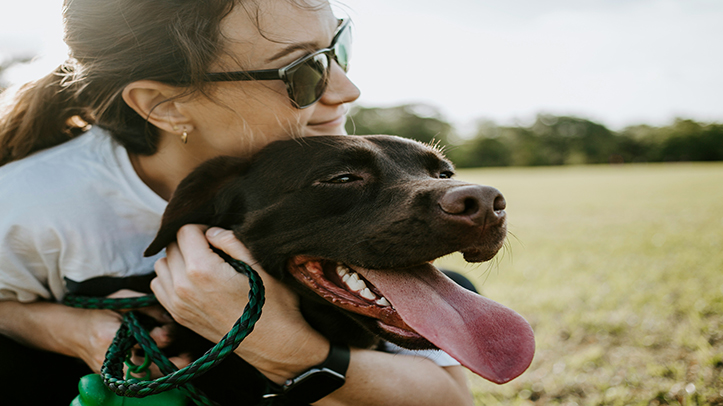UK pet owners face fines of up to £500 in the lead up to Christmas as nearly one in five (17%) claim that they won’t microchip their pets, despite the legal requirement to do so which recently extended to cats.
The findings are revealed as part of a new national survey of 2,000 cat and dog owners conducted by Frontline, which also discovered:
- 24% of cats haven’t paid a visit to the vet in the last year while around one in ten pets (9%) aren’t being kept up to date with their vaccinations, putting them at risk of catching dangerous diseases.
- Just under half (48%) of people don’t always check with their vet before making medical or dietary decisions relating to their pet, and a third (33%) never do so. While dietary decision-making can depend on the health of your pet, it is advisable to run any medical changes past a qualified professional.
- Over half of pet parents (57%) believe that they could be feeding their pet a more nutritious and balanced diet and one in five (20%) strongly agree with this statement. The same amount of people (57%) believe that they could be doing more to ensure that their pet receives enough exercise/enrichment.
Microchipping cats in England has been a legal requirement as of June 10 this year, including those who are kept indoors. Those who choose not to microchip their pets face fines of up to £500 if they are caught and are also putting their pet’s safety at risk if they ever become lost or stolen.
Younger generations appear less likely to have their pet microchipped, with 26% of 18–24-year-olds and 22% of 25-24 year olds surveyed claiming that they don’t, compared to only 8% of 55-64 year olds and 10% of those 65+.
Surprisingly, there is little difference in the number of cats (82%) versus dogs (85%) who are chipped. While some owners surveyed may have had a pet under the legal age (up to 8 weeks for dogs and 20 weeks for cats), the data referenced here only includes those who have no plans to microchip their pet once they are old enough.
Despite this finding, 86% of pet parents believe that they follow the recommended veterinary advice for their pets – contradicting much of the survey data and suggesting that many owners may not be aware of the potential risks associated with their reported pet care practices.
One major concern raised is the fact that nearly a quarter of cats (24%) haven’t had a vet visit in the last year.
With an estimated 10.8 million cats in the UK, this representative sample would equate to 2.7 million cats not receiving the regular veterinary care recommended. Additionally, nearly one in ten pets (9%) aren’t being kept up to date with their vaccinations posing many health risks ahead of the winter months.
This shift in behaviour is mirrored in the discovery that many owners (42%) say that they wouldn’t phone their vet straight away if their pet appears unwell, with a further 16% opting to Google the symptoms instead.
A potential explanation may be a lack of pet insurance, as 28% of owners report not having a current policy in place, leaving the risk of treatment cost in the case of an emergency.
One important practice is to keep on top of parasite protection. Most owners (61%) surveyed claim to worm their pets every one to three months and 39% are using a flea or tick treatment on their pets every month, which is the period recommended on many products.
The responsibility of pet ownership can be overwhelming, with decisions over what is best for your pet often a hard call to make and something over half (54%) of the pet owners surveyed worry about. 56% also say that they find it confusing knowing what to look for on pet food and care product labels, and 42% struggle to remember what is harmful or poisonous to their pet.
There is, however, no doubt that cats and dogs are well-loved by their pet parents, with many opting to spend nearly eight hours a day with them on average. Women were found to spend more time with their cats and dogs, at nearly 2 hours more per day compared to the men surveyed.
The amount of time recommended for engagement varies depending on the type of pet, and this can be difficult when working. Luckily, many offices have become dog-friendly since the pandemic, and over a third (37%) of those surveyed state that they bring their pets to work or opt to work from home to be with them, which can be beneficial to ease separation anxiety.
This adoration extends to spending, with more than one in ten people (11%) spending over £125 per month on their pet. 25-34-year-olds are likely to spend the most, while the national average sits at £73. Cat owners report spending £13 less each month compared to those with dogs.
To read more of Frontline’s survey findings, head to the brand’s blog.


